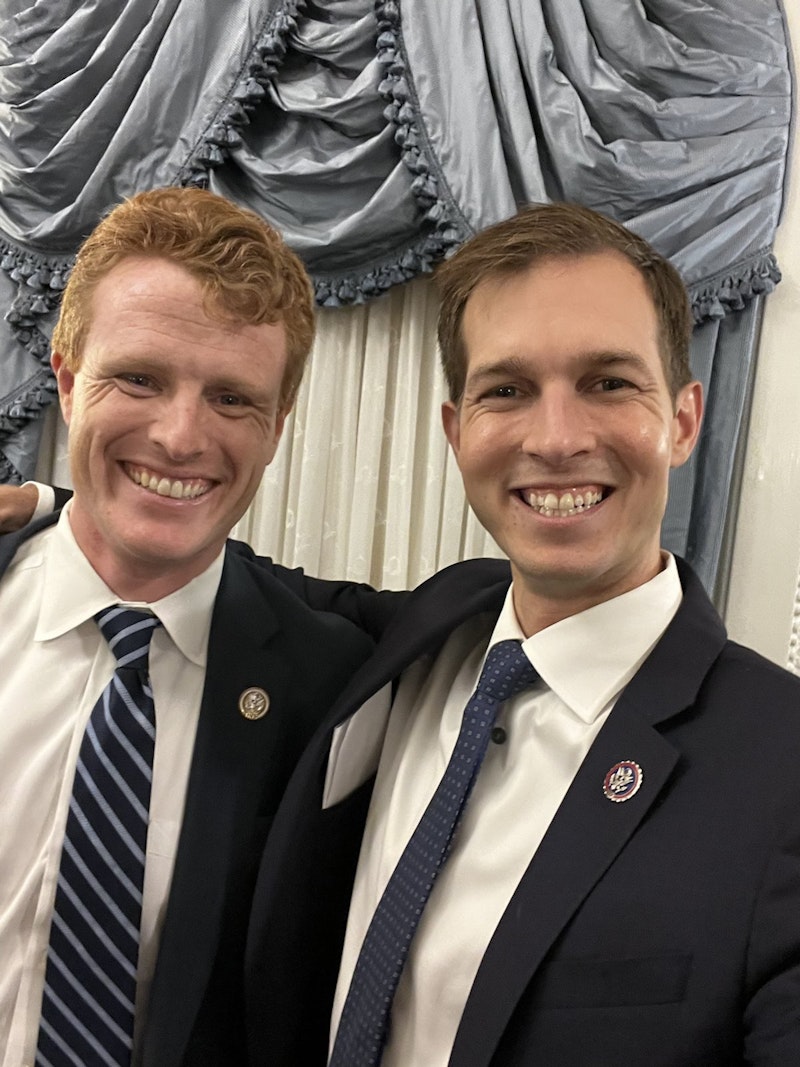U.S. Sen. Chris Murphy (D-CT) asked an interesting question on Twitter earlier this month, and people were unhappy. He posted this as a poll: "There are a lot of social conservatives who believe in populist economic policies and it would be a good idea to have those people a part of a Democratic/left coalition and accept a bit more intra-movement friction on culture issues as a consequence."
The response was overwhelmingly negative. Of the more than 54,000 people who voted in the polls, 77.4 percent said no. The respondents ratioed his tweet, with one of the top replies asking which cultural issues he sees as expendable bargaining chips. While the idea is unlikely to happen, and we won’t see a New England Democrat move right on social issues to appeal to populists, the tweet makes one solid point: coalition building is good. If people can work with others who disagree with them on many issues to get something done, they should take support where it exists. People in opposing parties can find common ground and work together effectively.
For example, liberals and progressives have had success at the ballot box in raising the minimum wage, even in red states. If liberal and progressive groups want to organize a ballot initiative to raise the minimum wage by a few dollars per hour, it’d be wise for them to team up with social conservatives who support a higher minimum wage. Minimum wage increases are popular and pass thanks to the support of Democratic and Republican voters in red states. Since it’s often beneficial to have more people collect signatures and do field work on a ballot initiative, such organizations shouldn’t purity-test people on social issues that have nothing to do with the issue at hand. If a pro-life, anti-affirmative action man who thinks there are two genders wants to collect 200 signatures to help get the question on the ballot, the liberal and progressive organizations should take the help. They can fight about social issues some other time.
As a right-winger in Massachusetts, I know several people pushing to get things done in one of the bluest states in the country. In Massachusetts, you can either pass a Democratic bill or a bipartisan bill. Partisan Republican bills have no chance of becoming law. One of the head Little League umpires in Taunton, Massachusetts, wants stricter penalties for harassing and assaulting sports officials, given a slew of violent and harassment incidents against sports officials in the state. He’s reaching out to all 200 state legislators because he wants as much support for these proposals as possible. So far, various proposals on this topic have bipartisan support. And since he's usually an apolitical guy, he merely wants to get something done, regardless of which side wants credit.
Revenge porn is another example in Massachusetts. The Bay State is one of two where this egregious practice is still legal. A Republican selectman who was the victim of revenge porn is among those pushing to outlaw it. His state Senator, a Democrat, sponsored the bill. Presumably, they have differences of opinion on various issues, but they agree here and can work together.
Federally, even Sen. Elizabeth Warren (D-MA) deserves occasional credit for bipartisanship. She’s working on bank regulation with Sen. JD Vance (R-OH), and has worked with Sen. Marco Rubio (R-FL) in hopes of barring states from revoking occupational licenses for people who default on their student loans. I know nothing about the banking legislation, but I like the latter proposal since denying people the opportunity to work makes it harder for them to pay their debt.
Conversely, U.S. Rep. Jake Auchincloss (D-MA) touts bipartisanship with an asterisk. He refuses to work on bills with any lawmakers who refused to certify the results of the 2020 presidential election, writing off a significant bloc of Republican lawmakers. As someone who voted for Donald Trump in 2020 and hopes he beats Joe Biden in 2024, I dislike the election conspiracy nonsense. However, the lawmakers who voted against certifying the election have the same voting power as any other member of Congress. If they have good ideas on a few issues, why not work with them on those?

